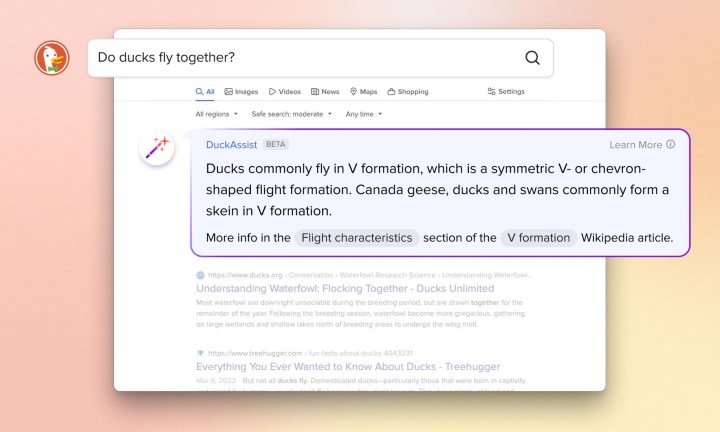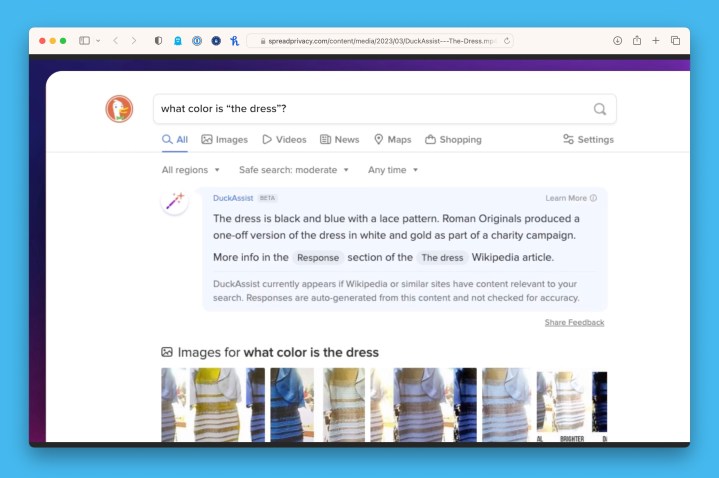Privacy-focused web browser DuckDuckGo is adding artificial intelligence (AI) smarts to its search results with a new summarizer feature. It’s just the latest browser to integrate AI into its offerings, and suggests you can have both privacy and AI in the age of ChatGPT.
Dubbed DuckAssist, the tool takes your search query and generates an answer summary from Wikipedia, placing this synopsis at the top of your search results. In keeping with DuckDuckGo’s emphasis on privacy, DuckAssist works anonymously using AI natural language technology.

Right now, the feature is free to use and doesn’t require you to sign up or create an account. DuckDuckGo says DuckAssist is currently in beta, but it should be rolled out to all users in the coming weeks. Beyond that, DuckDuckGo is also working on a “series of generative AI-assisted features” that should arrive in the next few months.
DuckAssist works by scanning a “specific set of sources” to find its answers. That’s usually Wikipedia at the moment, but also includes related websites such as Britannica. Because it’s just taking information from one main source rather than collating data from several outlets, DuckDuckGo says DuckAssist should be less likely to “hallucinate” than similar tools from rivals.
Privacy-focused AI

Because it’s based on natural language AI from OpenAI and Anthropic, DuckDuckGo says DuckAssist should be “more directly responsive to your actual question than traditional search results” you might get from the best web browsers. However, it will not be error-free, the developers say, and could struggle with finding the most relevant information and tackling particularly complex subjects. DuckDuckGo says it is working to improve the tool and its results, however.
If you’re concerned about your searches being shared with companies like OpenAI, DuckDuckGo says not to worry. Your browsing and search history is not saved or shared, and anything used to create DuckAssist summaries is private and anonymous. Your queries are not used to train the AI models used by OpenAI or Anthropic, either.
The explosion in popularity of AI tools like ChatGPT has raised a large number of concerns, but it seems DuckAssist could at least offer a more private alternative to tools like ChatGPT in Microsoft Bing. We’ll have to see how it develops over the coming weeks and months.
Editors' Recommendations
- The best ChatGPT plug-ins you can use
- ChatGPT AI chatbot can now be used without an account
- Copilot: how to use Microsoft’s own version of ChatGPT
- Is ChatGPT safe? Here are the risks to consider before using it
- What is ChatGPT Plus? Here’s what to know before you subscribe



